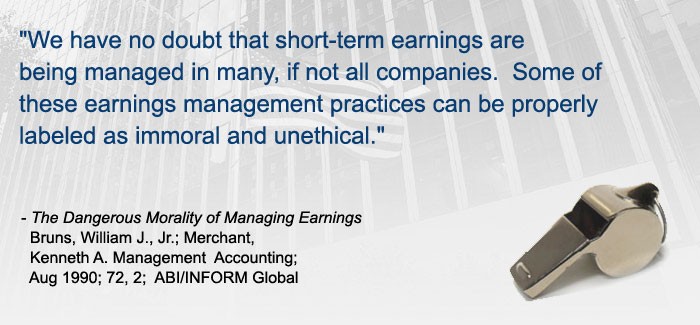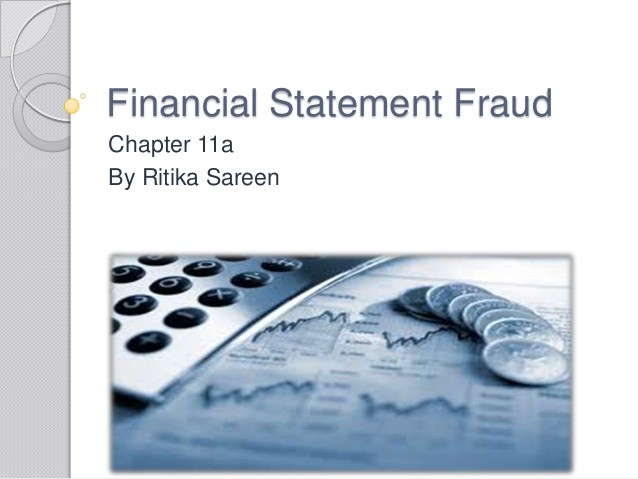Financial Statement Fraud
Post on: 28 Сентябрь, 2015 No Comment

Financial statement fraud is one of the biggest challenges in the modern business world. This is when corporations engage in certain practices designed to hide or maneuver the accounts of a corporation to help it continue to remain attractive to investors. To counter financial statement frauds. especially in the aftermath of the Enron scandal in 2001-2002, the US Congress introduced the Sarbanes Oxley Act, the compliance with which is mandatory for US corporations. A financial statement fraud may be actionable under both the False Claims Act and the Dodd Frank Act as well. You may have suffered a financial statement fraud or may have original information about a financial statement fraud. which means that you may be able to bring either a financial statement fraud lawsuit or a whistleblower lawsuit depending on the facts peculiar to your case.
Need Legal Help? (866) 510-5483
The most common occurrence of financial statement fraud is when losses are underplayed or deliberately hidden by corporations. Financial statement fraud comprises deliberate misstatements or omissions of amounts or disclosures of financial statements to deceive financial statement users, particularly investors and creditors, outright falsification, alteration, or manipulation of material financial records, supporting documents, or business transactions, material intentional omissions or misrepresentations of events, transactions, accounts, or other significant information from which financial statements are prepared, deliberate misapplication of accounting principles, policies, and procedures used to measure, recognize, report, and disclose economic events and business transactions and also intentional omissions of disclosures or presentation of inadequate disclosures regarding accounting principles and policies and related financial amounts.
There are massive issues that emanate from financial statement fraud. Financial statement fraud undermines the reliability, quality, transparency, and integrity of the financial reporting processand jeopardizes the integrity and objectivity of the auditing profession, especially auditors and auditing firms. Financial statement fraud diminishes the confidence of the capital markets, as well as market participants, in the reliability of financial information and as a consequence makes the capital markets less efficient. In the bigger picture it adversely affects the nation’s economic growth and prosperity, results in huge litigation costs, destroys careers of individuals involved in financial statement fraud and causes bankruptcy or substantial economic losses by the company engaged in financial statement fraud. It causes devastation in the normal operations and performance of alleged companies and erodes public confidence and trust in the accounting and auditing profession. Ultimately financial statement fraud translates to massive stockholder losses and debts to creditors, not to mention emotional trauma to employees who lose their jobs and retirement funds.

Financial statement fraud may be committed by the senior and mid-level management of a corporation to fraudulently enhance the financial health of a business and enrich one’s own net worth. Senior management may indulge in fraudulent cover-ups to exceed the earnings or revenue growth expectations of stock market, to comply with loan agreements, to increase the amount of financing available from asset-based loans and to meet a lender’s criteria for granting/extending loan facilities. They may also fudge the statements to create a rosy picture for the shareholders.
How do you determine financial statement fraud. Financial statement fraud is designed to rob you of your hard earned earnings primarily to fulfill the ever growing corporate greed. Here are some of the clear red flags that you might want to consider. First and foremost, despite tight cash flows, the company will report profits which mean that gross profit levels will remain high despite pricing pressure. The statement will show that accounts receivable, accounts payable and stock levels are increasing even when sales are declining. Keep an eye out for payments as bonuses to senior management in a down economy. This also is indicative of financial statement fraud.














